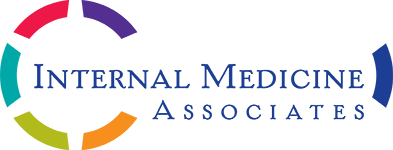- May Healthcare Awareness Topics - May 14, 2024
- Colon Cancer Awareness Month - February 28, 2023
- Lung Cancer Awareness Month - December 20, 2021
May awareness month includes physical fitness, mental health, older adults, and women’s health. All these topics are important to healthcare and your personal health. My aim of this article is to provide a brief overview of each topic.
We are all aware of the benefits of physical activity. It helps us physically, mentally, and emotionally. It is critical to a healthy lifestyle. The CDC recommends 150 minutes of moderate to high intensity exercise weekly. This can be divided however you choose and with whatever activity you enjoy. For example, walking 30 minutes a day for five days or running 75 minutes twice weekly would satisfy this recommended guideline. The key is to do what you enjoy as often as you are able.
Mental health affects most individuals to a degree, whether it be personally, a family member, or a friend. This affects people of all ages. According to Mental Health America, 21% of adults, or over 50 million Americans, experience mental health concerns. Whether it be anxiety, depression, stress, or insomnia, it is important to discuss your concerns with your primary care provider, counselor, family, and/or friends. It is important to address any issue as soon as it arises.
Geriatric medicine deals with healthcare for the elderly. This field of medicine includes the Baby Boomer’s generation and the generations prior, typically individuals of age 65 and older. At this stage of life, it is very important to keep routine follow up appointments with your physicians, let your doctor know of any new or worsening medical conditions, stay up to date on preventative screening tests (especially cancer screenings, such as colonoscopy, mammogram, etc.) and vaccinations. It is very important to keep close monitoring of your health and be as proactive as possible with your healthcare.
Women’s health is another important field of medicine, including obstetrical and gynecological healthcare needs. Specifically, it is important to stay up to date on routine cancer screenings for women. This includes screening for cervical cancer, breast cancer, and osteoporosis. It is recommended to begin screening for cervical cancer at age 21. Cervical cancer screening stops at age 65. Newer guidelines recommend breast cancer screening starting at age 40 and typically continuing until age 75. Screening for osteoporosis typically begins at age 65 and ends at age 75. It is important to let your doctor know of any relevant family history and conditions you may have.
Here at Internal Medicine Associates, we are committed to helping you with any of these healthcare issues or any other issue you may have. Please let your primary care provider know if we can help in any way.
